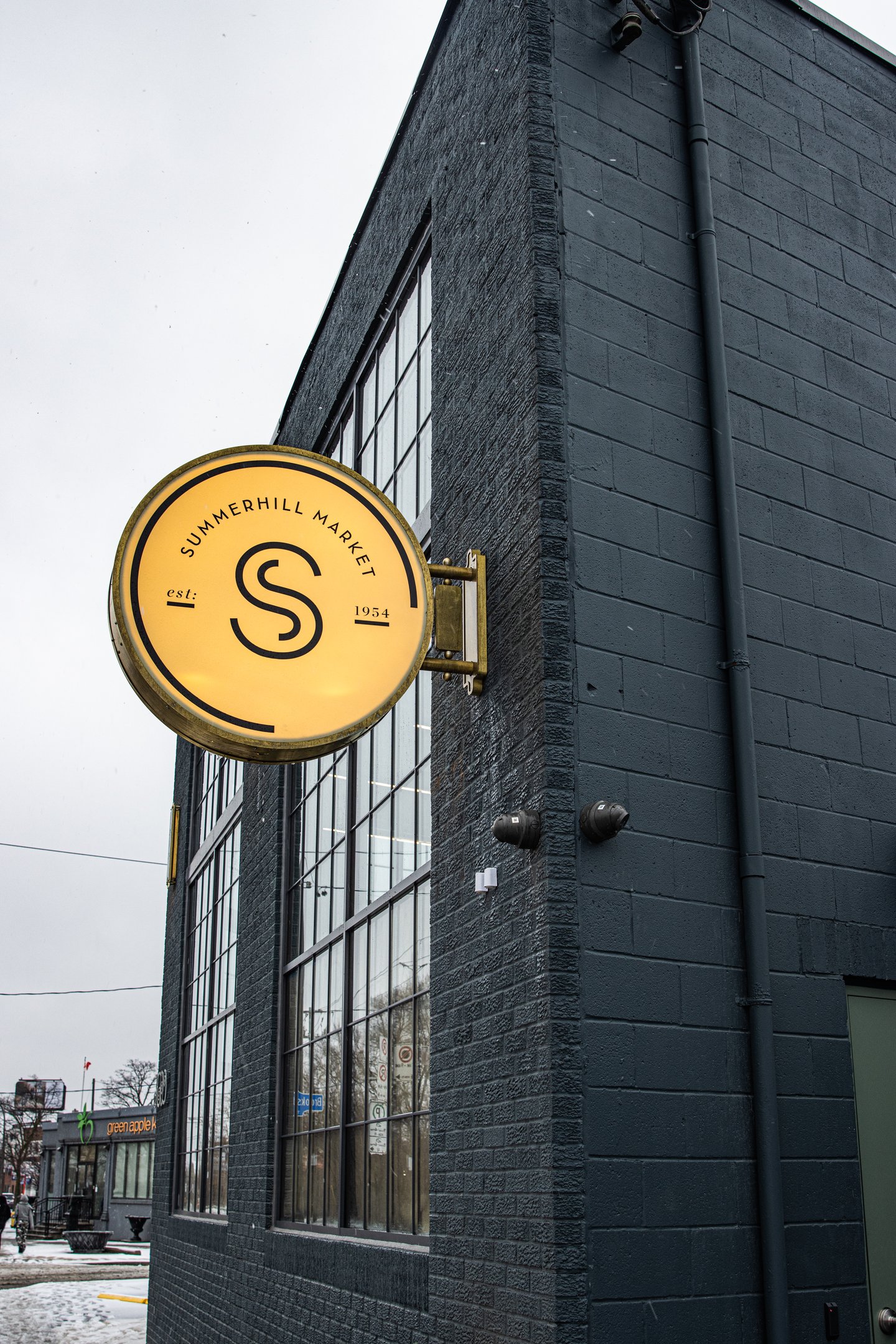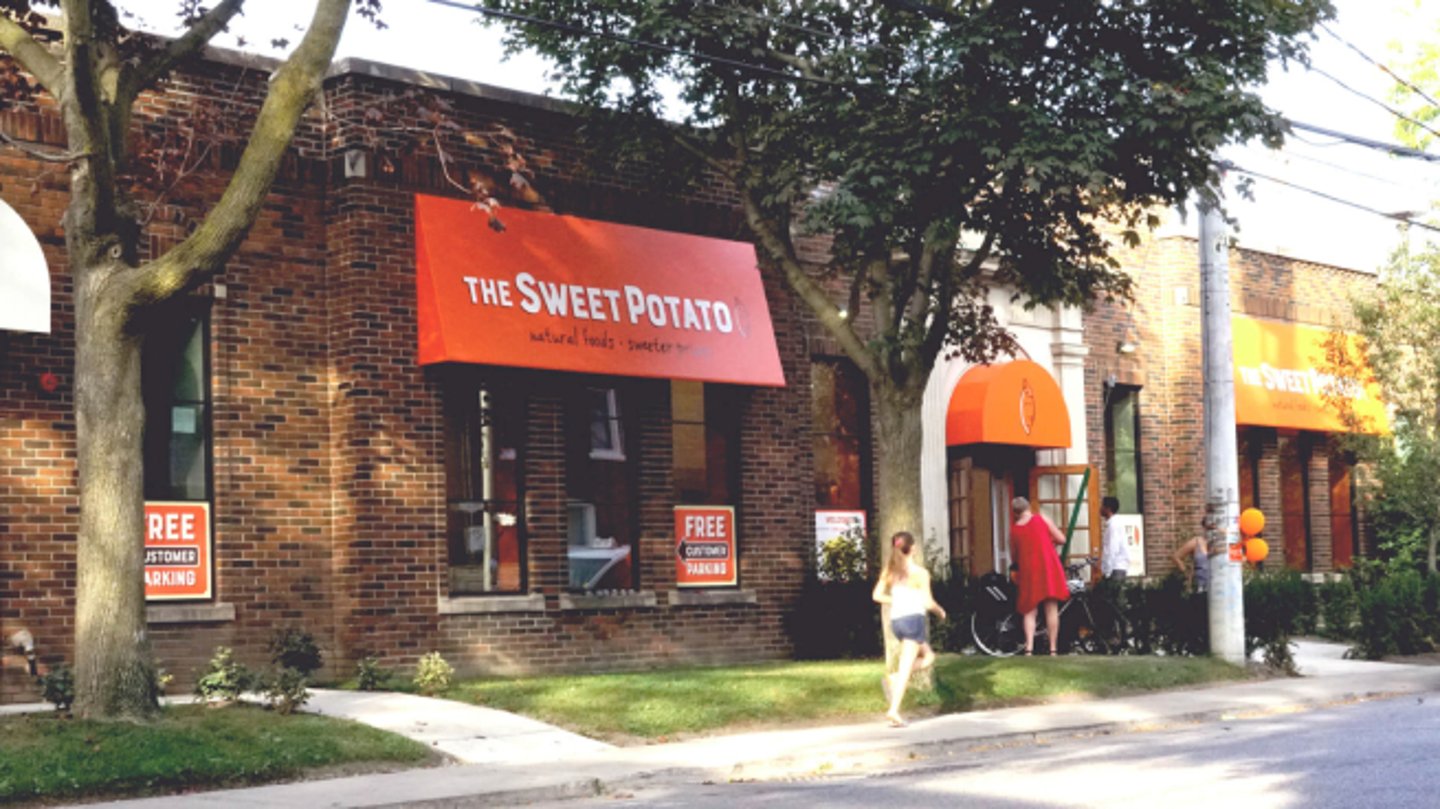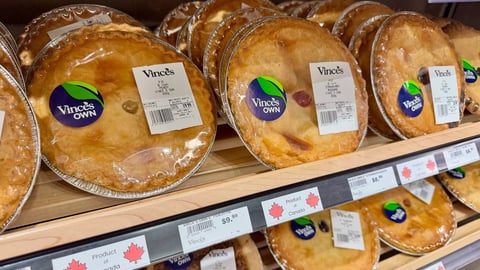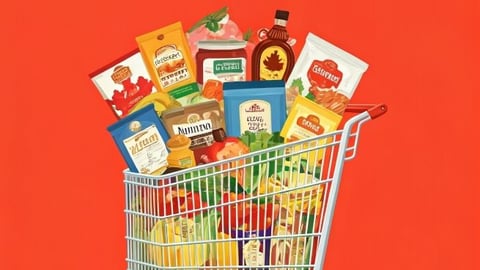How independent grocers are navigating uncertainty around tariffs
With U.S. President Donald Trump’s proposed 25% tariff on Canadian imports still in the “will he or won’t he stage,” independent grocers are taking a “wait and see” approach. But they’re far from standing still. Many are adjusting their buying strategies and embracing the “buy Canadian” movement in response to rising consumer demand.
Brad McMullen, co-owner and president of Toronto-based Summerhill Market, highlights several potential impacts of proposed U.S. tariffs and retaliatory tariffs from Canada, which would raise the cost on U.S. imports.
First, he says, general economic conditions and consumer confidence might impact customers’ spending. “Then there is the cost of certain goods, as there are many items that have a connection with the U.S.,” he adds. “Lastly—and one of the biggest expenses we have from the U.S.—is equipment and parts. With most purchases, we do have alternatives so it may affect our decision-making and obviously we’ll avoid certain products and equipment suppliers.”
Fresh produce challenges and local solutions
Despite potential challenges posed by tariffs, McMullen believes they won’t drastically affect operations, as long as goods continue to flow through the U.S., such as produce from Mexico. This could mean “more apple juice, less orange,” he says. Additionally, McMullen points out a new greenhouse operation nearby that’s beginning to plant greens, and Summerhill Market plans to be their first customer. As a result, the grocer plans to stock less romaine and more green leaf lettuce. “Other than that, we will wait and see. We can delist and list items at a moment’s notice for whatever makes most sense for our customers.”
READ: Why Summerhill Market is still thriving after 70 years in the grocery business
As an independent retailer, McMullen emphasizes that Summerhill Market has “always been a local and Canada-first company. So, other than immediate concerns of fresh produce and major U.S. brands’ presence in our stores, we are not making any significant moves to prepare for the impending tariffs.”
Digs Dorfman, founder and CEO of The Sweet Potato in Toronto, also recognizes potential challenges with fresh produce. “There’s no doubt that we’ll be affected,” he says. “While we have strict rules around selling Canadian products whenever possible, we do depend on American-made and grown goods, particularly in the wintertime when Ontario farms are largely shut down.”
To mitigate potential impact, Dorfman reaffirms his store’s commitment to local sourcing. “We have a much higher percentage of Canadian products than most chain stores. Staying close to home with our sourcing is part of our DNA,” he explains. “If and when the tariffs do go into place, we’ll be forced to review products on a case-by-case basis, and it’s likely that we’ll have to cut some items if the cost becomes prohibitive.”
Sourcing beyond the U.S. border
Despite a strong commitment to local sourcing, McMullen notes that Summerhill Market has also spent years developing a small segment of its business by offering trending American products imported directly from the U.S.
“Our last order arrived just before the announcements, so we will be reviewing that entire category,” says McMullen. “We hope not to delist the entirety of it. but it’s a very real possibility and our U.S. suppliers are not happy about it.”
READ: FHCP’s Michael Graydon on tariffs and the path ahead for Canada’s food sector
To further diversify, McMullen shares that Summerhill is looking to expand sourcing beyond the U.S. “We are sending a buyer to Italy in a couple of months and may accelerate our plans to deal directly with other European countries, which was something we have started but weren’t pursuing with pace,” he says.
Embracing the ‘Buy Canadian’ movement
As tariffs loom, a patriotic push is sweeping the shopping aisles, with Canadian consumers eager to support homegrown products. While independent retailers are known to prioritize Canadian products, they’re now making it easier for customers to identify these products.
“We’ve always drawn crowd interest in supporting local, but we’re being asked about it more than ever,” says Dorfman. “We’re currently in the process of posting clearer identifiers on our price tags to showcase Canadian products, and we will continue marketing programs like our Local Spotlight, which we’ve been doing for many years.”
As the “Buy Canadian” movement gains momentum, the Canadian Federation of Independent Grocers (CFIG) is helping members respond to the surge in consumer demand. CFIG is offering a digital signage resource that displays the tagline, “Proudly Canadian – Supporting Canadians.” The signage, which is available for download on CFIG’s members’ area of its website, can be used to display in-store on entrance doors, as shelf tags, in social media or affixed to letterhead stationery.
READ: Grocers stocking up on Canadian, international suppliers as shoppers avoid American
The initiative underscores the fact that independent retailers themselves are proudly Canadian and they’re committed to supporting Canadian businesses.
Gary Sands, vice-president of government regulations at CFIG, says the movement has been welcomed among the association’s members “because this is in their DNA—and it always has been.”
At the same time, Sands says the association recognizes that labelling Canadian products can be complex because of the integrated North American supply chain and different definitions of “Product of Canada” and “Made in Canada.” In addition, he notes that companies that are “very recognizable to consumers as America” have significant operations in Canada. For example, Kraft Heinz plants tomatoes in Ontario and processes them in Quebec, employing about a thousand Canadians. Frito-Lay has four processing plants in Canada, sources potatoes from the country and employs around 10,000 Canadians.
“We’re sensitive to that, but we want to look at this as an opportunity to get the message across that independent grocers are [proudly Canadian.] It’s not just about what’s on our shelves. It’s who we are.”






